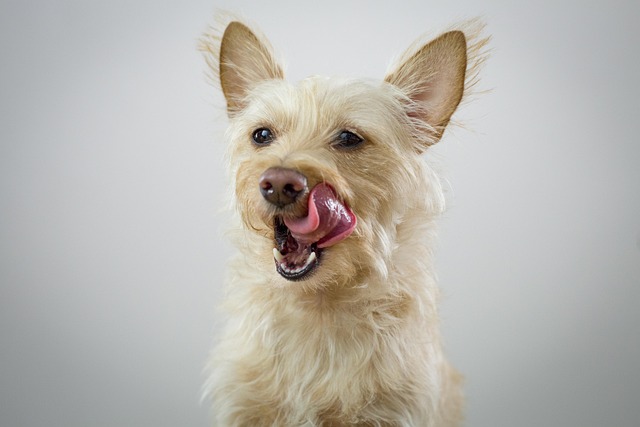
How do i train my dog to be obedient?
Watching your dog dart across the park ignoring your calls isn’t just frustrating—it can put them at risk near busy streets or public spaces.
When you bring home a cute Labrador puppy with joy, its furry appearance and passionate tail can instantly melt your heart. Before long, you may be troubled by its problem of defecating and urinating everywhere, looking at the dirty corners of your home, feeling both helpless and anxious. Don't worry, as long as you master the scientific methods and have enough patience and love, training Labrador Retrievers to use the restroom is not difficult.
Labrador is a very intelligent and obedient breed of dog, which provides a good foundation for training. However, during their puppy stage, their bladder and sphincter muscles have not fully developed and cannot control excretion well, so they require proper guidance from their owners. Understanding the excretion pattern of Labrador Retrievers is the first step in training. Generally speaking, Labrador Retrievers are prone to excretory needs around 15-30 minutes after eating and drinking, after waking up, and after playing and getting excited. Puppies may need to excrete every 2-3 hours, and as they age, the interval gradually increases.
Preparation is essential before training. Firstly, it is necessary to select a fixed excretion site for the Labrador. You can choose a relatively quiet and well ventilated corner of your home to place a dog restroom or a urine pad. The material of the dog toilet should be easy to clean, and the urine pad should be chosen to have strong water absorption and fecal attractant function. Once the location of excretion is determined, do not easily change it to allow the Labrador to form a fixed memory. At the same time, prepare some Labrador's favorite snacks, such as chicken jerky, cheese cubes, etc. These snacks will become reward "magic weapons" during training, motivating it to cooperate with the training.
Training Labrador Retrievers to use the restroom should start with the details of daily life. When you notice that a Labrador starts to show signs of excretion, such as spinning on the ground, sniffing around, squatting, etc., you should quickly carry it to the designated excretion site with gentle movements to avoid startling it. Then, softly say some guiding words to it, such as "go pee" and "go poop". If it excretes in the right place, immediately give it gentle praise and snack rewards, while gently stroking its head or back to make it feel your recognition and love. Dogs are very intelligent animals, they can quickly associate excretion at the correct location with receiving rewards.

If a Labrador accidentally defecates elsewhere, do not beat or scold it. Because beating and scolding not only cannot solve the problem, but also make it feel fearful and confused, and may even cause it to be afraid to defecate in front of you and choose a more concealed place. When it is found to be excreted in the wrong place, we can clean the excrement with a tissue or newspaper to minimize the residual odor, and then take it to the designated excretion location to emphasize the instructions again.
To strengthen the Labrador's habit of defecating at designated locations, we can place a tissue or urine pad with the scent of its urine or feces in the dog's restroom or excretion area after it has defecated. This can use the scent to guide it to defecate here again next time. Additionally, every time you take it to the excretory site, repeat the same instructions to gradually familiarize and understand your intention.
As training progresses, we can gradually extend the time interval between Labrador's two excretions and cultivate its habit of timed excretion. For example, starting from taking it to the excretory site every 2-3 hours, gradually extending to every 3-4 hours, and then to longer periods of time. But pay attention to its reaction, and if it shows obvious excretion needs, it is still necessary to take it away in a timely manner.
During the training process, it is inevitable to encounter some setbacks. For example, Labrador Retrievers may forget to defecate due to their playfulness, or experience repeated episodes after training for a period of time. At this point, we must maintain patience and not give up easily. Each Labrador has different learning abilities and speeds, some may learn quickly, while others require more time and repeated training. As long as we persist in guiding them with the correct methods, they can ultimately develop good excretion habits.
Watching Labrador go from initial ignorance to gradually learning to use the restroom at designated locations, this process is full of challenges but also a sense of achievement. Every patience and love we put in has been rewarded in their growth. Let us accompany the Labrador through this important training stage with love and patience, and make it a well behaved and sensible member of the family, enjoying a warm and beautiful life together.

Watching your dog dart across the park ignoring your calls isn’t just frustrating—it can put them at risk near busy streets or public spaces.

New puppy owners often find themselves rushing to clean up accidents before they set in, and that’s where puppy pad training becomes a game-changer.

If you've noticed your dog's waistline disappearing and your veterinarian has mentioned those few extra pounds, your first instinct might be to simply reduce the amount of food in their bowl.

Training a dog to use a designated spot indoors isn’t as daunting as many new owners fear, but it does take consistency and an understanding of your pet’s needs.

That moment of dread on a walk is all too familiar for many new dog owners. You see another dog approaching down the sidewalk of your neighborhood

If the sight of another dog on your neighborhood walk makes your heart sink as your own dog erupts into a frenzy of barking and lunging, you're not alone.